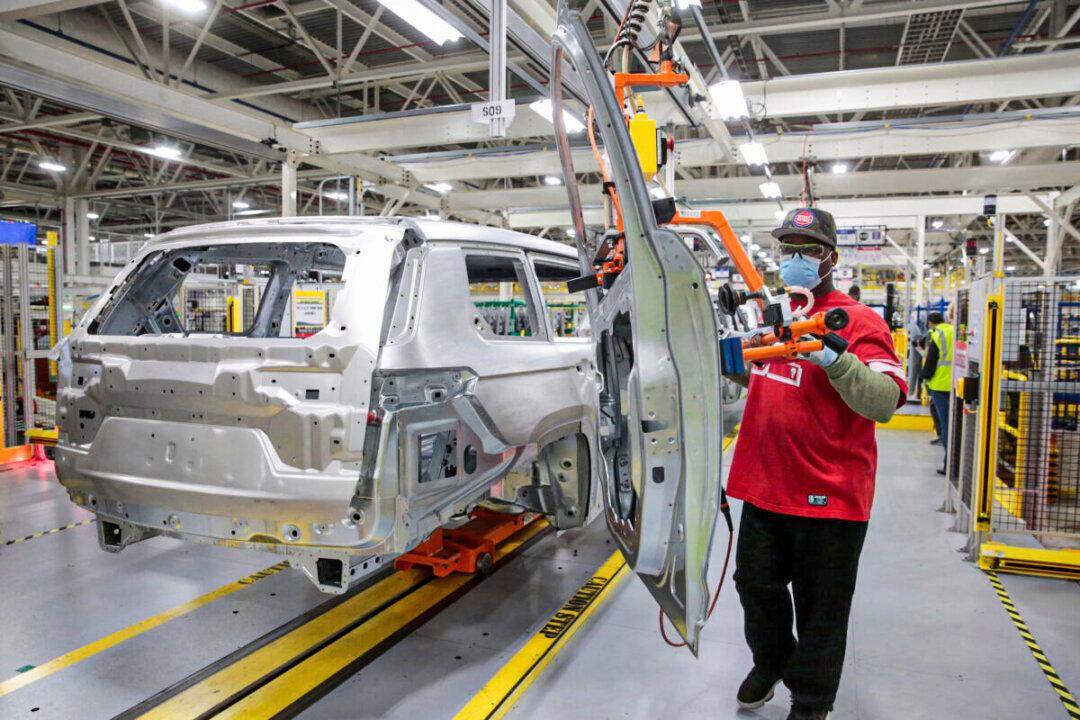WASHINGTON—Detroit’s Big Three automakers said on Thursday they will allow autoworkers to stop wearing masks at workplaces where U.S. health officials have said it is safe to do so.
General Motors Co., Ford Motor Co., Chrysler-parent Stellantis NV, and the United Auto Workers union said in a joint statement they would adopt the new Centers for Disease Control and Prevention (CDC) guidance allowing workers at U.S. facilities to not wear masks regardless of COVID-19 vaccination status, if those facilities are not in high-risk counties.





